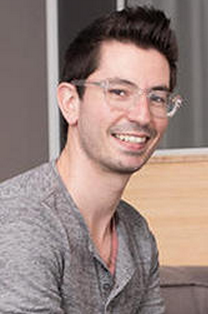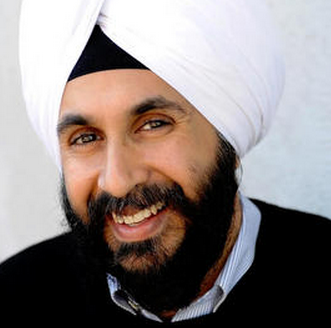Anonymous isn’t synonymous with ominous
This post first appeared on CNET News
by Larry Magid
I’ve heard a lot of consternation about apps and sites that let users post anonymously and, indeed it is possible to use services like Whisper, Ask.FM, Secret, and Yik Yak to be annoying, mean, or downright cruel. But the same can be said for any tool that enables social interaction, whether it’s a social network, a phone, or even a place where people meet face-to-face. In fact, research has shown the in-person bullying is much more prominent than cyberbullying.
But just because a service enables people to post anonymously doesn’t mean that people will necessarily use it in an inappropriate manner. The overwhelming majority of both kids and adults who use such services do so in ways that are respectful to themselves and others. And, where problems do occur, there are often mechanism to deal with them. They’re not perfect and they’re not on all services but community guidelines and moderation — where present — can go a long way to assuring a pleasant experience on any type of social networking service.
Why people post anonymously
It’s pretty obvious why corporate or government whistle-blowers and dissidents in oppressive countries would post anonymously, but there are plenty of reasons why ordinary people would as well.
The word is out among both kids and adults that what you post online can follow you forever. Whether its Facebook status updates or tweets, anything you say in social media can be attributed to you and can come back to haunt you if its embarrassing, silly, or just taken out-of-context. But there are times when people want to “be themselves” without necessarily wanting to be on a stage for all to see and judge. It could be a silly comment or observation or perhaps a political comment that might pigeon-hole you or affect your relationships with others. Some have used anonymous services to express their love or admiration for another and many use it to discuss issues of both physical or emotional health that they might not want to be publicly associated with.
Even if you’re not a whistle-blower, you might have something to say about your boss, your teacher or principal or someone else in authority but you’re worried about repercussions. You might even be a victim of bullying looking for a way to express your hurt or anger without having to worry about revenge or other repercussions.
Secret co-founder on secret behind Secret
In a recorded interview (scroll down to listen), Secret co-founder Chrys Bader argued that “there’s a need to be able to express yourself and make yourself vulnerable in order to connect with those around you on a meaningful level.”
“When you’re on Facebook you’re standing on a platform in front of a mixed audience of your friends, family and acquaintances,” he added. “Se we try to our best foot forward.” When asked whether being anonymous is truly being self-expressive, Bader retorted, “If you look at someone’s Facebook profile would you necessarily say that’s that person? It’ s not necessarily who they are but who they project themselves as.” Bayder defines being oneself as being able to “express your own characteristics, your sense of humor, what’s bothering you. It’s catharsis.” He calls it “a loss for the world when people hold themselves back.” He mentioned a post where someone said they stepped out of a handicapped stall to be confronted by “a guy in a wheelchair with anger in his eyes.” That’s a confession that you probably wouldn’t want to attach your name to.
Unlike some anonymous services, Secret doesn’t share your secrets with just anyone. When you join Secret you become connected with everyone in your contact list who also has the Secret app. “So,” said Bayder, “when you post a secret, it’s delivered to people who have you in their address book and you’re seeing secrets from people in your address book.” If one of your contacts “hearts” something it could be shared with their friends as well.
Anonymity and kids
Secret is mostly aimed at professionals and, since it doesn’t ask age, Bader doesn’t know how many kids are using the service but he said there are clearly some teens using it (youth under 13 are prohibited by the sites terms of service). Yik Yak, another popular anonymous app, bans people under 17 but there are lots of reported cases of teens using the service and reported cases of anonymous bomb threats that led to school lockdowns. Yik Yak’s response was to geofence the app so that it couldn’t be used in or near middle schools and high schools. The company reportedly also asked Apple to classify the app as 17+ which enables parents to prevent their kids from downloading it.
An anonymous app just for high-schoolers
With its FessApp, for iOS and Android, Polymath Innovations took the opposite approach. They have launched an anonymous app specifically for high school students. Polymath co-founder Mandeep Dhillon is no stranger to online kids. He was the founder of Togetherville, a social-networking site aimed at young children that was acquired by Disney in 2011 and he spent a year as Disney’s vice president of Strategy.
Dhillon’s new company, he said in a recorded interview (scroll down to listen), “is very much about trying to build community for high school students.” He said that “anonymity in our context is not the same as having no responsibility.” Even though students can engage anonymously with each other the company, said Dhillon, “requires users to sign up with their real identity” so that they can be held accountable for their actions.
They currently sign up people through Facebook which helps the company validate the user’s age and high school. It’s not perfect (people can lie about their age on Facebook) but it’s pretty hard to fake an entire social graph on Facebook so it’s a reasonably good proxy for validation. Students who sign up with a fake Facebook account, said, Dhillon, “won’t be associated with students that go to their school if their school’s not validated.”
The service also moderates conversation to protect against bullying and other violation of its terms of service which bans “any material that could be considered racist, threatening, violent, bullying or unlawful in any way.” Like Secret, FessApp discourages people from shaming or identifying specific individuals in their posts.
Anonymity, said Dhillon, “allows students to engage in a very open and honest way.” Fess is short for “confessions” and students use the app to vent about a variety of subjects including “their grades, their parents, or the anxieties of being a student although way from being lonely or worried about relationships or being invited to the prom.” Others in their network can comment on the student’s post and they can engage in an conversation about it. When it comes to bullying — which can take place in any type of community — FessApp “gives people an opportunity in the community to step in and flag content and say this is inappropriate.” Like Secret, FessApp is something of an antidote to the public nature of Facebook. “The Facebook theater can be exhausting. Constantly being under the spotlight, trying to find ways to get attention on these platforms can really drive you crazy.,” said Dhillon. With FessApp, students can say what’s on their minds without having to worry about it sticking around forever.
Bullying experts weigh-in
Justin Patchin, co-director of the Cyberbullying Research Center and Professor of Criminal Justice at the University of Wisconsin-Eau Claire, said that “anonymous posting can be beneficial for those who are exploring particular beliefs and ideals that they wouldn’t necessarily want to go public with just yet.” One example, said Patchin is a person who is “trying to figure out who I am politically, religiously, morally, etc. Posting publicly may be too high of a price to pay for this exploration.” He also reminded me that “some of the greatest works of literature were initially published anonymously.”
Patchin said that “anonymity becomes a problem when one is using it as a cloak from behind which to lob attacks at others. If this happens, those who are being targeted for attack should make a copy of the hurtful content for their own records and then contact the administrator to ask that it be removed.”
Hemanshu Nigam, a former federal prosecutor and former director of safety for MySpace who now runs SSP Blue — a safety, privacy and security consulting firm, pointed out that “anonymity is extremely important for law enforcement” which depends on anonymous tips for many of its investigations. The Catholic church’s use of the confession booth is another example that encourages anonymity.
Being yourself, regardless of age or who you are
Both Dhillon and Secret co-founder Baden talked a lot about how their apps free people up to be who they are. At first that sounds a bit counter-intuitive because — with anonymity — people don’t know who they are. But the person doing the posting does and, without fear of long or short term consequences, it actually is intuitive that people will say what’s on their minds. For the most part, that’s a good thing but of course there will always be a small percentage of people who abuse it. That’s where community comes in.
Anonymous doesn’t mean invisible
Secret and FessApp know who you are and if you break the law using their services, there is a chance you’ll be caught. Companies that offer phone-apps can track your phone number and user ID and even if you’re logged on to a website, it is often possible to track down your Internet protocol (IP) address. It’s not uncommon for law enforcement to obtain warrants that require service providers to disclose the identity of users who think they are “anonymous.” In other words, you hide but you can’t run. At least not forever.
Podcasts:
Scroll down to listen to the full interviews with both Chrys Bader and Mandeep Dhillon
[soundcloud url=”https://api.soundcloud.com/tracks/144409550″ params=”color=ff5500&auto_play=false&hide_related=false&show_artwork=true” width=”100%” height=”166″ iframe=”true” /]

